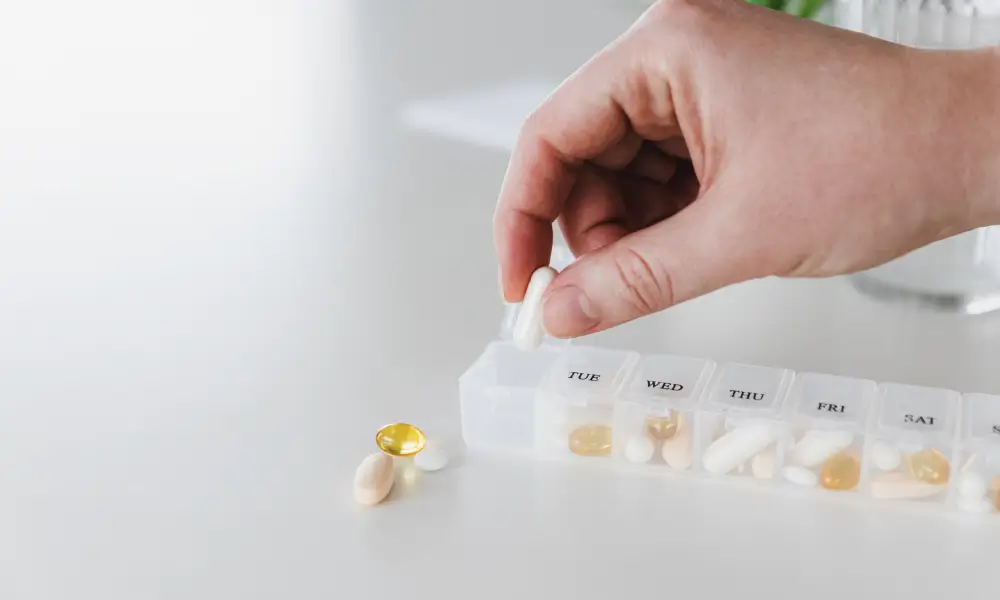Dextromethorphan: Uses, Side Effects, Dosage, Interactions and more

What is Dextromethorphan, and What Is It Used For?
This medication relieves coughs but doesn't treat their cause or help you recover faster.
Scientists have discovered this versatile compound could help with other conditions. Current research explores its benefits for stroke, traumatic brain injury, seizures, pain management, and Parkinson's disease.
How to Take Dextromethorphan Safely
Adults should take 10-20 mg every 4 hours or 30 mg every 6-8 hours, up to a maximum of 120 mg daily. Doctors recommend different doses based on a child's age and advise against giving it to children under 4 years.
Dextromethorphan comes in various forms:
Liquid-filled capsules (15 or 30 mg)
Chewable tablets
Dissolving strips (7.5 or 15 mg)
Solutions (liquids)
Extended-release suspensions
Lozenges (5, 7.5, or 10 mg)
Note that you should measure liquid forms with proper measuring devices—not household spoons. Always keep one thing in your mind: you should not take more than the recommended dose or take it longer than 7 days.
Possible Side Effects and Safety Concerns
You can experience dizziness, drowsiness, nausea, and sometimes nervousness. If you are taking higher doses, you can have euphoria, hallucinations, and persecutory delusions.
Overdose can lead to serious problems like:
Breathing difficulties
Increased heart rate and blood pressure
Hallucinations
Seizures
Potentially coma or death
Taking Dextromethorphan with MAOIs (monoamine oxidase inhibitors) or serotonergic antidepressants like SSRIs can cause serotonin syndrome. Mixing it with alcohol is a big deal as it means that your overdose risk increases.
Call your doctor if your cough continues or you develop a fever, rash, or persistent headache.
Conclusion
Dextromethorphan is a common medication you will find in most medicine cabinets, but many people don't know how to use it properly. This blog shows how this cough suppressant does more than just quiet annoying coughs. Of course, modern medicine has found new uses for it - from treating pseudobulbar affect to helping with depression when combined with bupropion.
Safety comes first with any medication. You should always follow the recommended dosage guidelines, especially when you have children, and never take more than the daily limit. The medicine comes in different forms that are available to most people, but each form needs careful measurement and proper use.
Side effects can be mild, like drowsiness, or become serious complications at higher doses. So keep an eye out for warning signs and get medical help if your symptoms get worse or last more than a week.
The biggest problem comes from drug interactions. Mixing Dextromethorphan with certain antidepressants or alcohol can create dangerous health situations. Talk to your doctor or pharmacist about other medicines you take before starting this medication.
Millions of people use Dextromethorphan to manage their cough symptoms effectively. This common medicine needs respect and understanding. Knowing what it can and cannot do will help you use it safely the next time you need to tackle a stubborn cough.
FAQs
What is Dextromethorphan used for?
We use Dextromethorphan to suppress coughs from throat irritation, common colds, or flu. This medicine won't help with coughs from asthma, smoking, or chronic bronchitis. Doctors prescribe Dextromethorphan with quinidine to treat pseudobulbar affect (uncontrollable laughing/crying) and with bupropion for major depression.
Is Dextromethorphan safe for children?
Children under 4 years old should never take Dextromethorphan. Kids between 4-6 years need a doctor's supervision. Safety concerns led manufacturers to remove infant cough products and add clear age restrictions on labels.
Can Dextromethorphan cause drowsiness?
Drowsiness isn't common with Dextromethorphan, but it can happen. Higher doses make drowsiness more likely. You should wait to see how this medicine affects you before driving or operating machinery. Avoid taking it with other medications that cause drowsiness, like antihistamines, benzodiazepines, or certain antidepressants.
Can I take Dextromethorphan with other cold or flu medicines?
Many cold products contain multiple ingredients, so be careful. Check labels thoroughly because taking two medications with Dextromethorphan could lead to overdose. Blood pressure and heart rate might increase if you combine it with medicines containing pseudoephedrine.
Can I take Dextromethorphan with other medications?
Here are the key interactions to know:
Absolutely avoid taking with MAOIs (monoamine oxidase inhibitors)
Use cautiously with serotonergic medications like SSRIs, SNRIs, and TCAs due to serotonin syndrome risk.
Never mix with alcohol as this increases overdose danger and worsens side effects.
Consult your doctor about CYP2D6 inhibitors (bupropion, quinidine), which affect your body's processing of Dextromethorphan
